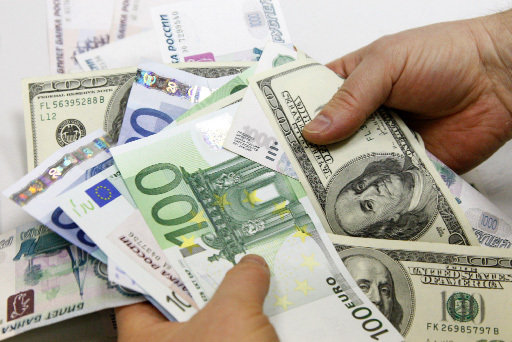MOSCOW, February 3 (RAPSI) – Corruption costs the European economy approximately EUR 120 billion annually, the European Commission revealed Monday upon releasing its first EU Anti-Corruption Report.
“Corruption alone is estimated to cost the EU economy EUR 120 billion per year, just a little less than the annual budget of the European Union,” the report states, noting that the financial crisis increased pressure on European nationals and their governments.
The report contains analyses of each member state, outlining a variety of corruption issues as well as of mechanisms aimed at curbing corruption, some with better rates of success than others.
Some countries – such as Denmark, Finland, Luxembourg, and Sweden – were found to have both a favorable perception in terms of corruption, and good actual ratings in terms of the rarity of bribery.
Others – such as Croatia, the Czech Republic, Lithuania, Bulgaria, Romania, and Greece – were found to have low perception rankings and poor actual ratings. In those countries, 6-29% of respondents claimed to have been asked or expected to pay a bribe in the preceding year. In those countries, 84-99% of respondents asserted the view that corruption is widespread in their respective countries.
Hungary, Slovakia, and Poland were found to have high levels of bribery within the healthcare sector. “There is evidence that structural problems in healthcare provide incentives to pay a bribe for medical staff. Indeed, in all the countries mentioned, the detailed answer show that healthcare is referred to by the highest number of individuals, while all other institutions or sectors (e.g. police, customs, politicians, public prosecutors’ services, etc) were named by less than 1 % of respondents,” according to the report.
Public procurement was highlighted as an area with a particular propensity toward corruption issues within the EU as a result of deficient control mechanisms and risk management. This is crucial considering the prominent role played by public procurement within the EU economy.
“Approximately one fifth of the EU’s GDP is spent every year by public authorities and by entities governed by public law in procuring goods, works and services. Approximately 20% of this total concerns public procurement exceeding the thresholds above which EU procurement rules apply. The Commission estimated the total value of calls for tenders above those EU thresholds to be approximately EUR 425 billion in 2011,” according to the report.
Advocacy group Transparency International (TI) released a statement Monday urging EU countries to do more to fight corruption.
“Trust in Europe’s leaders is falling because relations between business and the public sector take place in the dark, leaving citizens with questions about whose interests are being taken care of… To bridge the gap between politics and people, there must be greater transparency in public life and more public officials held to account for their actions,” TI Deputy Managing Director Miklos Marschall said, as quoted in the statement.



